13 survival lessons we can learn from our ancestors
Our ancestors were true survivalists. They knew how to cook healthily, repair things, or procure food. Now learn 13 survival lessons.
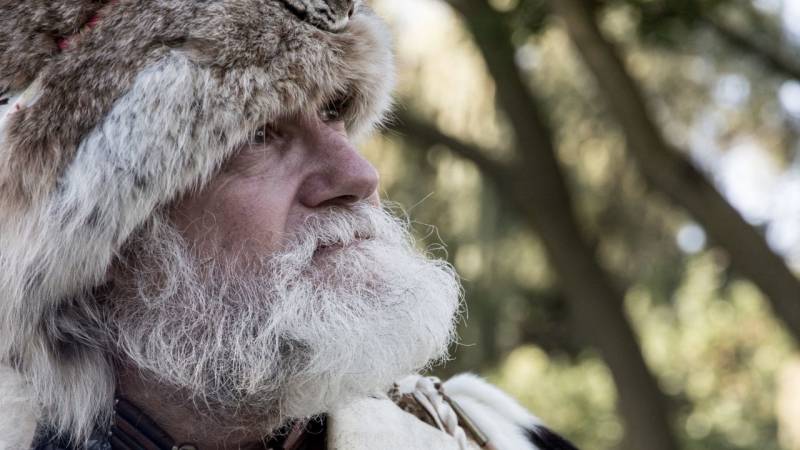

From Martin Gebhardt. Check out my “About me” page.
👉 The key facts from this guide
- Consume "real" food: Eat whole grain products, milk, eggs, cream, butter, seasonal fruits and vegetables, fresh seafood, and meat.
- Cultivate a garden and raise animals: Homegrown food is healthier, and gardening is good for the mind and body.
- Be aware of your surroundings: Learn to read and understand nature to respond to changes.
- Use everything, waste nothing: Use resources efficiently and avoid unnecessary waste.
- Be reliable and helpful: Support others in your community and be a part of it.
- Develop a sense of humor: Learn to laugh during difficult times and see the positive side.
- Adapt to circumstances you cannot change: Learn to be flexible and adapt to changes.
- Be a grateful and happy person: Value what you have and be thankful for the small things in life.
- Treat your body as if you will need it for over 100 years: Take care of your physical, mental, and emotional health.
- Learn more than one skill: Develop a variety of skills to prepare for different situations.
Unlike modern humans, our ancestors were true survival artists.
They knew how to cook healthy food, fix things, procure food, and go through tough times with a positive outlook.
Now, I want to show you 13 lessons from our ancestors that we can learn a lot from.
1. Eat "Real" Food
Whole grains, milk, eggs, cream, butter, seasonal fruits and vegetables, fresh seafood, and meat.
My ancestors and yours usually ate in the simplest way possible, and none of it was processed industrially, making it a lot healthier than the 80% of supermarket food today.

They also used herbal remedies as medicine. They grew herbs and preserved them to season their food.
Today, we have to search for this information in books because we probably won't learn it from our parents or other family members.
Many of these foods came from their gardens or were found in the wild and were full of vitamins and minerals. (Learn how to build your own self-sufficient garden here).
Could you search for food? Most people walk past edible foods and herbs these days. So, it's best to read my guide on edible plants in the forest.
Real food is better for you and tastes so much better than processed supermarket food.
There are no words to describe the difference between a tomato purchased at a supermarket and a tomato picked directly from the vine in a garden.
Recommended reading: 16 quickly growing vegetables to grow in a crisis (emergency food from the garden)
2. Run a garden and raise animals
Growing your food helps you appreciate the food on your table every day.
You not only consume more nutrients, but also work healthier in the garden. It counts as exercise and gives you the necessary sunshine for vitamin D.
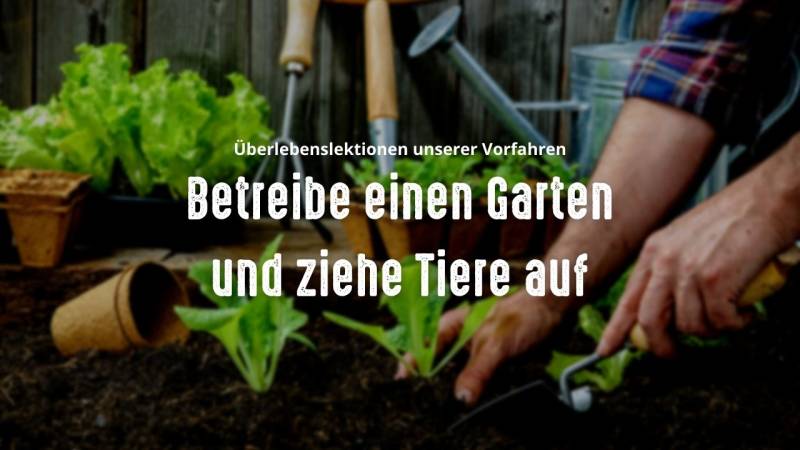
Being outside and listening to nature is good for the mind. Spending time away from every screen and being with oneself can be therapeutic.
When your hands dig in the dirt, and you care for your plants, you can connect with the earth. Awe and gratitude for nature and animals can be felt.
Even if your land is just a backyard or a balcony, there is still room for your self-sufficient garden. And you will need time to gain experience.
That's why you should start growing immediately, even if it's just a herb garden on the windowsill or a backyard pharmacy.
The learning curve for successful growth is surprisingly steep.
3. Pay attention to your surroundings
Our ancestors went outside and paid attention to nature.
Through animals and the life cycles of certain plants and trees, our ancestors learned about the changes in the seasons.
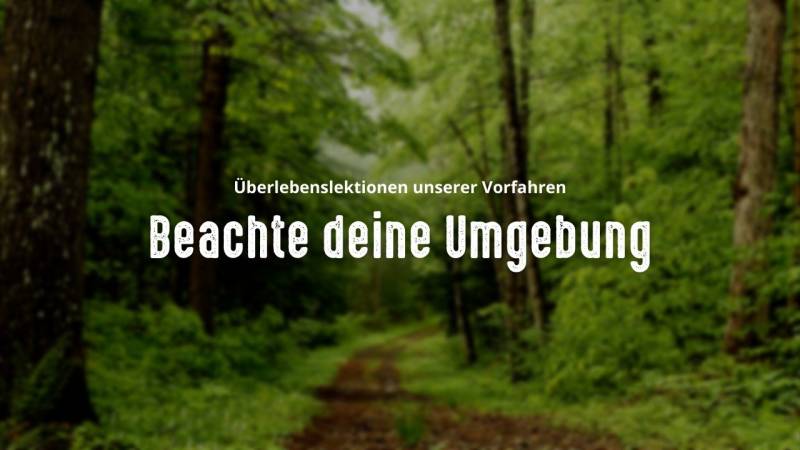
Certain animal species react sensitively to changes in the atmosphere, among other things. Farmers could recognize what weather was coming based on the behavior of the animals.
Or they tracked animals for hunting because they could interpret the tracks and footprints of the animals.
Understanding how to read the sky and the ground was once a skill that was passed down through generations.
These people knew their environment and reacted to fluctuations.
And we can show and teach our children these observation skills. This article contains some tips on how to orient yourself in nature without a compass.
Or read my article on tracking if you are keen to learn more about it.
4. Use everything, waste nothing
Our ancestors saved their money and often there was no place to shop.
Clothing was worn, passed down to the next child, and then passed on to the next. If clothing could not be worn, the garment was taken apart and reused—often for quilt squares, patches for other clothing, or as a dust or dishcloth.

Our ancestors had so much wisdom, and my list in this article is only a partial collection of what we can learn from them.
Last year's new shoes became this year's "new" shoes for younger siblings, or old work shoes.
Leftover food went into soup or was fed to animals.
When I think of my grandpa, any wood, metal, or tools were saved for future needs. Screws, nuts, washers, and nails were a standard item in the house.
Over the years, my grandpa learned to fix and maintain cars, appliances, and homes. This saved him money, but also kept him physically and mentally active.
And let's not forget: this was a sustainable practice, as there was generally less waste.
5. Come down from your high horse
An important habit to learn from our ancestors is to be kind and humble.
Our elders will always remind you that you don't know what others are going through.
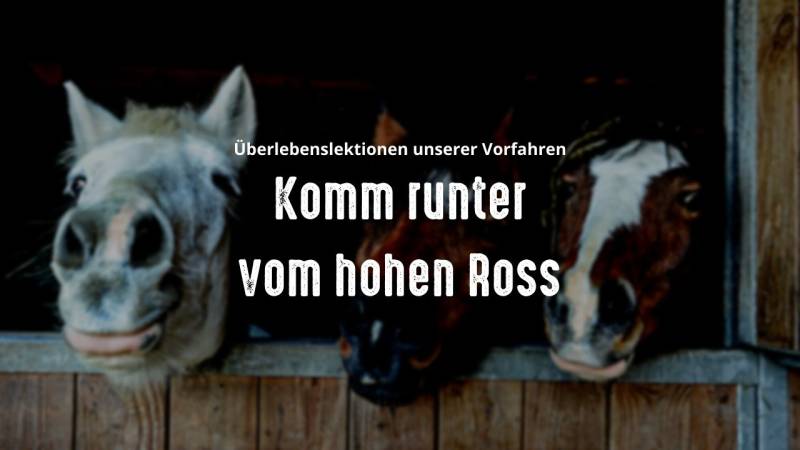
Simply watching some older people in our lives can help us empathize with others in different situations.
Kindness is stronger than indifference, it costs you nothing (except maybe some ego), and has a strong, positive impact on your relationships.
Through simple acts of kindness, you can turn someone else's difficult day into a happy one.
So, keep spreading this love - not hate.
6. Plan ahead and prepare for the unknown
Our ancestors' lives depended on being prepared.
Food had to be preserved in the fall, so they had something to eat in the winter and spring.
In the summer months, wood had to be chopped and stacked, and food for livestock and family had to be constantly stored.
Life was more unpredictable for them than it is today.

An illness would often show up within a few hours and animals or the family would suffer.
Injuries took longer to heal than they do today - death was typically a possibility.
My great-great aunt buried more babies than she gave birth to. With each pregnancy, she knew there was a chance her baby might not survive.
For some of our ancestors, natural disasters were a game-changer or a bad harvest.
It's always a promising idea to set aside extra sources of light, food, water, and medicine, fuel, and money.
Check your life, health, and other insurance plans. Take care of your physical, mental, and emotional health.
Your body and mind are your most important tools - especially in times of crisis.
Set aside some money for an unforeseen day because it's guaranteed to happen in our lives.
Recommended reading:Emergency Preparedness List: What You Need to Survive(+PDF)
7. Be reliable and helpful
Some of my ancestors were farmers. When harvest time came, everyone pitched in.
Even non-farmers joined in. Many people were needed to get the work done.

Fields had to be harvested, the crop had to be cleaned and prepared for sale or preservation. There was an immense amount of work to be done and everyone had to help.
But it wasn't just during harvest time that family members were present, they were also there for care or when someone got sick. There were times when someone fell ill or had a baby - the women from the neighborhood came together and helped.
Between caring for the sick, cooking, cleaning, or taking care of children, the work got done. Friendships and a sense of community emerged.
Your help and support for the people in your surroundings benefits everyone.
8. Find a joyful hobby
My great-grandfather loved to paint, my grandmother also draws, my grandfather walked through the mountains every week, and my mother loves gardening. Others enjoy working with wood, like me, for example.
These hobbies were not necessary for my ancestors or for my survival, but they are memories that were a lot of fun.

To slow down in our hectic time and develop a talent, start a new hobby or expand on your current one.
It's a reminder that life isn't just about "to-do" lists, but also about doing things that bring you joy.
Nowadays, we have to find time for hobbies and then, when we have a little time, it's difficult to decide what to do at all.
Take a look at my 19 bushcraft ideas, for example, which are guaranteed to sharpen your skills and provide fun in the forest.
9. Develop a sense of humor
There will always be hard times and in some situations, it's better to laugh about them.

Over 50 years ago, my grandparents covered the roof of their garden shed in the summer. It was necessary because it was the only shelter in their large garden. They stored their tools there and processed and preserved their food.
Money was tight at that time, and they had to wait months for building materials.
After three hours, my grandfather fell through the roof, but they just laughed. Of course, they stopped working, covered it temporarily, and waited more than 2.5 months for new building materials.
Even now, my older relatives get together and laugh about all the things that happened in their younger years.
Often, it doesn't help to become hysterical or moody – the situation remains the same.
10. Adapt to the circumstances you can't change
I learned this lesson for life from my late grandfather.
His father went to a Russian prison and died a pitiful death there: "In life, we never know what lies ahead. What's important is to adapt to circumstances that cannot be changed, no matter how difficult."
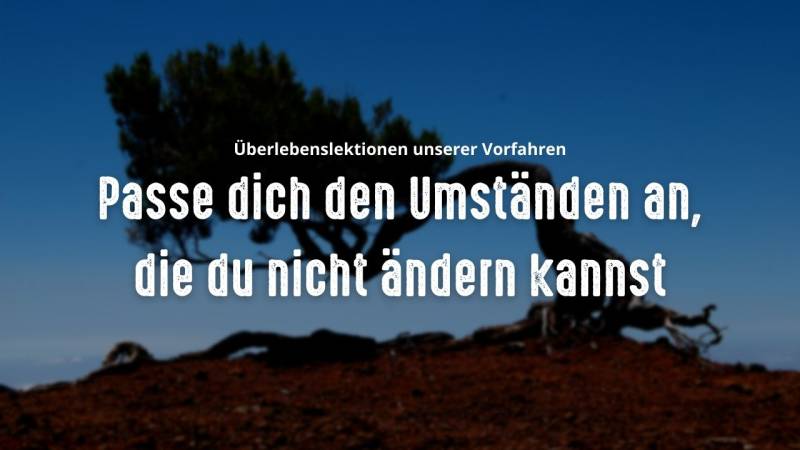
I've heard the words of my grandfather from other elderly people – who made decisions to adapt, so they can control their surroundings.
Related to this is the following mindset: Never lose hope that things will improve.
Although my grandfather never saw his father again, he fought for justice for other people his entire life.
11. Be a grateful and happy person
Our society bombards us with advertising for all the things we don't have. Some of us feel the pressure to keep up with it all.
Most of my ancestors were not wealthy. They had what they needed and were satisfied with it. There was no desire for excess, which exists in today's culture.
Everything they worked hard for, they appreciated and took care of.
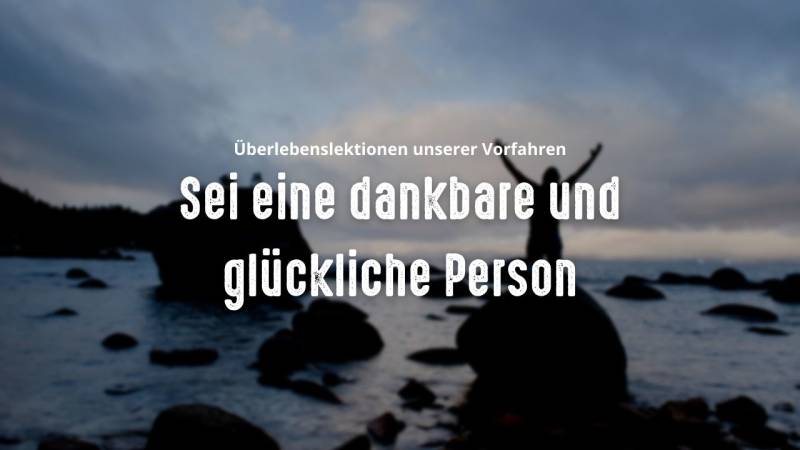
They gave thanks for a harvest (hence Thanksgiving) and the food before they ate.
But nowadays, we take everything for granted. The abundance of food, heating in the house, the warm and soft bed, the hot water, or the garbage disposal.
Many people have forgotten what we possess and how difficult it was to obtain these luxuries. We should be grateful every day for being healthy and living here.
All of this is part of survival, both mentally and emotionally.
It's surprising how often people feel bad even though they have everything material.
Recommended reading: How gratitude makes you more resilient (+exercises)
12. Treat your body as if you will need it for over 100 years
Similar to saving for retirement, younger adults don't always think about long-term benefits like their health.
But we young people aren't invincible either; in fact, we are at a vulnerable age for some serious health concerns.

I learned a life-changing lesson from seniors:
"It's not dying that you should worry about - it's a chronic illness."
My grandmother always said:
"What you do when you're young will haunt you when you're old. Take care of your body when you're young, live right, go to the doctor and stay in shape."
13. Learn more than one skill
My grandfather was a vivid example of this.
As a young boy, he learned to fish and provided the family with fresh fish. Later, he helped out in his parents' business and learned how to handle money.
Thereafter, he acquired manual skills by working with metal and maintaining train cars at the railroad.

If something broke, he repaired it himself. If he wanted to learn something, he worked for someone who could teach him.
He was never a wealthy man, but he had learned a variety of skills to take care of his family.
My great-grandmother was resourceful. She knew how to prepare healthy meals using everything she harvested.
She made and repaired clothing for the family, made sure the children went to school, and helped with farming and animals.
And they were able to give the newly married children a better start in life.
Being able to do one thing is good. Knowing you can do other things is better.
Consider learning something about home and car maintenance and repair, or other professional skills.
We start every day with the opportunity to learn from those who came before us.
Future generations can benefit from it.
What do you think about the skills I have listed here? What else comes to mind?


Author of the guide
Martin Gebhardt
Hey, I'm Martin. On my blog, you will learn the basics and numerous details about living in the wild. I think survival, bushcraft and the good life in nature are the keys to happiness. Find me here on Instagram or on YouTube. You can find more about my mission on the About Me page.
Was this guide helpful?
33 people found this guide helpful.
5.00 out of 5 points (33 Ratings)
Comments (0)
This post may contain affiliate links. So if you click on the links and make a purchase, I will receive a small commission at no additional cost to you. Click here, to learn more about it.



